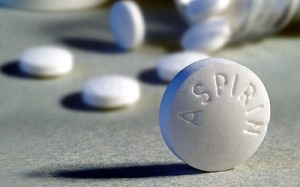Archive for October, 2011
Oral sex can increase the risk of Cancer
 Even though oral sex may help in improving your sex life it can also increase the risk of oral cancer. A recent research conducted by US scientist found strong connection between oral cancer and sex. The study also found a sharp rise in human papilloma viruses or HPV infection which is one off the main causes of oral cancer. Researchers found that there was a 225% increase in oral cancer cases in US and one of the main causes for the rise is HPV infection.
Even though oral sex may help in improving your sex life it can also increase the risk of oral cancer. A recent research conducted by US scientist found strong connection between oral cancer and sex. The study also found a sharp rise in human papilloma viruses or HPV infection which is one off the main causes of oral cancer. Researchers found that there was a 225% increase in oral cancer cases in US and one of the main causes for the rise is HPV infection.
According to Maura Gillison of Ohio State University, one of the main reasons for rise in oral cancer in people is the number of people they have performed oral sex. When the number of partners that you have oral sex increases, the risk of oral cancer increases. Scientists have also found that chances of acquiring HPV infection increases in people by 800 percent if they have oral sex with 6 or more partners.
According to National Cancer Institute, there are more than 150 different types of HPV infections and about 40 HPV infections can be transmitted when a person has oral sex with their partner. Some HPV infection can cause genital warts while other high-risk infections can cause anal, oral, virginal or penile cancer. These infections are common and may cause cervical cancer in women if they are untreated.
People who sexually active are likely to get HPV infection at some point and it is important that you get the right vaccine to protect yourself. Cervarix and Gardasil are two vaccines that are approved by US Food and Drug Administration that you can use to protect yourself from this infection. Men who are vaccinated can reduce the chances of genital warts by more than 90 percent. However, general population and people who are not sexually active need not get HPV vaccine because the risk of HPV is low in these people.
To reduce the chances of HPV infection, it is important that people discuss HPV with their doctors. Most teenagers are unaware of the risk associated with oral sex and it is important that they know about the risk associated with oral sex.
Aspirin can reduce the risk of cancer
 Taking aspirin can help in reducing the risk of colon cancer by 60 percent in people who have a history of disease. According to Tim Bishop, a researcher and the professor of epidemiology at Leeds University, the study they have conducted has proved another positive effect of aspirin and people who are at risk of colon cancer should seriously consider taking aspirin every day.
Taking aspirin can help in reducing the risk of colon cancer by 60 percent in people who have a history of disease. According to Tim Bishop, a researcher and the professor of epidemiology at Leeds University, the study they have conducted has proved another positive effect of aspirin and people who are at risk of colon cancer should seriously consider taking aspirin every day.
For the study, the researchers from University of Leeds and Newcastle analysed about 1000 people from about 16 countries. All the people who were surveyed were suffering from Lynch syndrome which increases the risk of cancer in people.
These people were divided into two groups – one group took two aspirins a day and the other group did not take aspirin. It was found that people who took aspirin for two years had reduced risk of cancer when compared to people who did not take aspirin. Also, women who took aspirin had reduced risk of womb cancer.
However, the study does not say how aspirin helps in preventing cancer. Some scientists are of the view that aspirin causes the damaged DNA to die which reduces the risk of cancer. But people must be aware of the dosage they must take to reduce the risk of cancer. Increasing the dosage of aspirin can be dangerous as it can cause vascular bleeding and ulcers.
Some scientists are of the opinion that long-term use of aspirin can reduce the risk of cancer. However, most doctors avoid suggesting the use of aspirin for long-term use as it can cause serious stomach bleeding. People must not take even low doses of aspirin without consulting their doctor.
